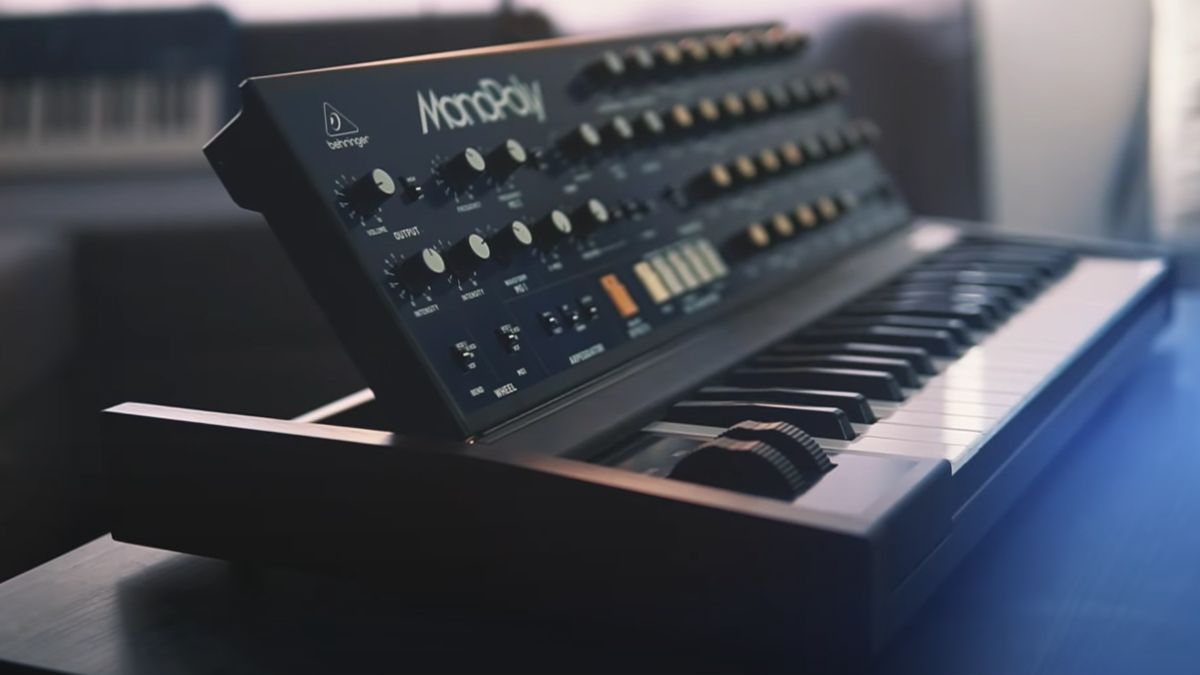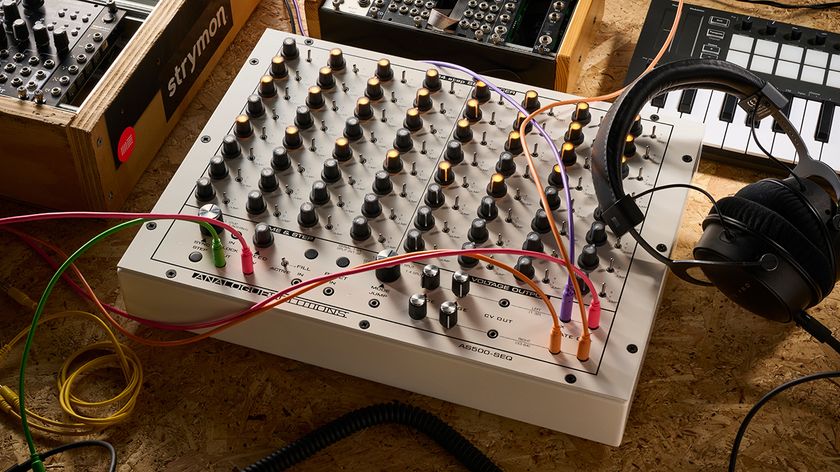Behringer’s MonoPoly synth is now available for pre-order, but you’ll probably have to wait until next year to play it
If you were hoping for one for Christmas, you’re out of luck

The birth of a new Behringer synth is typically a long and drawn out process, and the MonoPoly has been no exception. Announced six months ago, this is finally available for pre-order, but even if you do pull the trigger, you might still be in for a bit of a wait.
As you might suspect, this is a reboot of Korg’s Mono/Poly, so you get four VCOs - each with a choice of four waveshapes - a 24db vintage filter, dedicated filter and VCA ADSR envelopes and dual analogue LFOs.
The MonoPoly can be played in monophonic, unison and poly modes, with its paraphonic design meaning that you can play up to four notes at a time. There’s also a Chord function that enables you to trigger complete chords from a single note.
Other options include PWM and detune, and there’s an effects section with cross-modulation and oscillator sync capabilities. As on the original, there’s an arpeggiator, while round the back you’ll find trigger and CV connectivity, plus a full suite of MIDI ports.
The MonoPoly has 37 full-size keys, and the control panel can be tilted at three different angles or laid down flat.
You can pre-order the MonoPoly now for $699, though with a projected wait time of around 10 to 13 weeks, you probably won’t get your hands on it until February, which is still some way off.
Find out more on the Behringer website.
Get the MusicRadar Newsletter
Want all the hottest music and gear news, reviews, deals, features and more, direct to your inbox? Sign up here.



I’m the Deputy Editor of MusicRadar, having worked on the site since its launch in 2007. I previously spent eight years working on our sister magazine, Computer Music. I’ve been playing the piano, gigging in bands and failing to finish tracks at home for more than 30 years, 24 of which I’ve also spent writing about music and the ever-changing technology used to make it.












